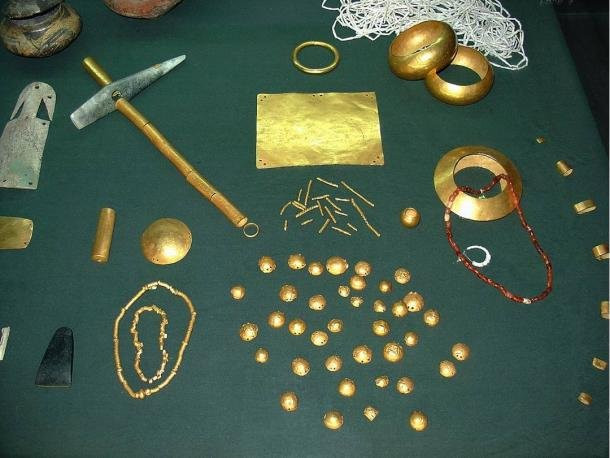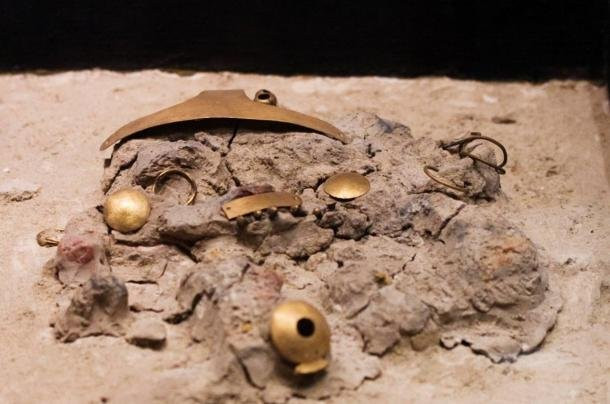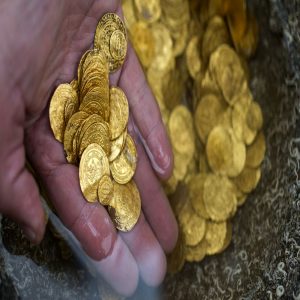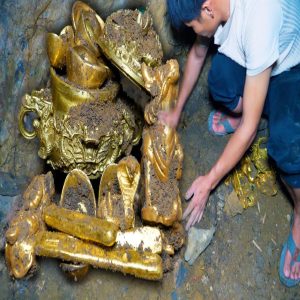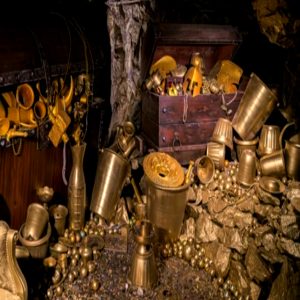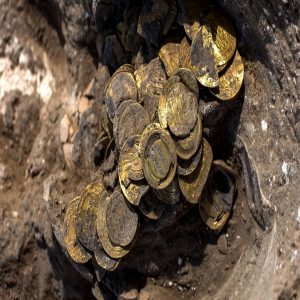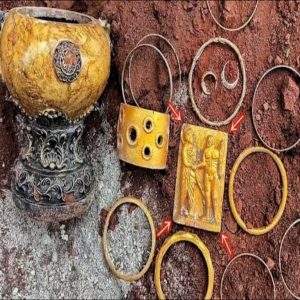In the 1970s, archaeologists in Bulgaria made a remarkable discovery near the modern city of Varna. They uncovered a massive Copper Age necropolis from the 5th millennium BC, containing the earliest golden artifacts ever found. The true significance of the find, however, was not realized until they reached grave 43.
The Richest Grave of Its Time
Grave 43 held more gold than had been discovered in the entire world at that time. Inside, researchers found the remains of a high status male buried with unimaginable riches, including a scepter and a solid gold sheath covering his penis. This burial, known as the Varna Man, marked the first known elite male burial in Europe.
Rise of the Varna Culture
The Varna culture, as it came to be known, was a remarkably advanced civilization that emerged 7,000 years ago on the shores of the Black Sea. It was the first society known to create golden objects, predating the civilizations of Mesopotamia and Egypt.
Advances in Metallurgy and Trade
Goldsmithing first appeared in Varna between 4600-4200 BC. As craftsmen mastered the smelting of copper and gold, the society gained valuable commodities to trade. Increased interactions with northern and southern neighbors opened up economic ties between the Black Sea and Mediterranean regions, with Varna becoming a thriving trade hub.
Insights into Varna Society
The Varna necropolis provided a wealth of information about the ancient civilization’s complex social structure and funerary practices. Elite members of society received lavish burials with gold ornaments and precious grave goods, while others had more modest burials.
Intriguing Funerary Rituals
Researchers noted interesting patterns in the positioning of male and female bodies within graves. Some graves, known as “symbolic graves” or cenotaphs, contained no skeletons at all but held the richest grave goods. Clay masks and female-shaped amulets hinted at elaborate burial rituals.
Lasting Legacy of the Varna Culture
Although the Varna culture began to decline toward the end of the 5th millennium BC, its impact on the development of European civilizations cannot be overstated. With unparalleled metallurgical skills and a highly stratified society, the Varna culture laid the foundation for the emergence of subsequent civilizations across Europe. The key tenets of their society, including a centralized authority, continue to shape our modern world today.


